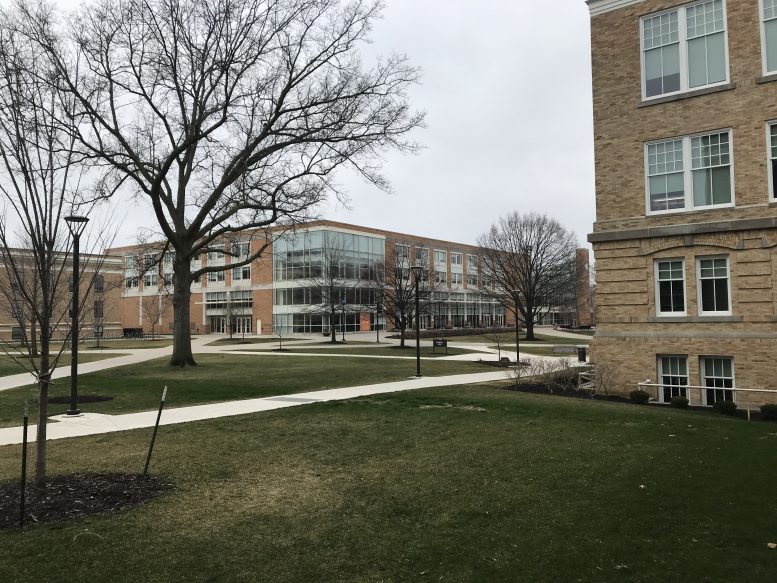By DAVID DUPONT
BG Independent News
The Bowling Green State University Board of Trustees Friday voted to eliminate the out of state fee for many graduate students and cut it in half for undergraduates enrolled in the summer semester.
The fee of $332 per credit hour was cut to $1 per credit hour with a maximum charge of $12 for students who have earned degrees from Ohio institutions, said Sheri Stoll, the university’s chief financial officer. This was done as part of a state initiative to try to encourage those students to stay in Ohio.
The fee reduction will benefit as many as 100 students, and cost the university about $100,000.
The fee reduction does not apply to Master of Business Administration programs or graduate programs that are delivered as part of the eCampus/Distance or Extended Campus. These programs are excluded because they target a professional audience, are in high demand; or already have significantly reduced non-resident fees.
The trustees also waived 50 percent of the student fees for student enrolled in the summer semester. These courses will all be taught online.
That fee reduction would remain in place through Spring 2021 if students do not return to campus and instruction is provided in a fully remote manner. The waiver would be 25 percent if instruction were provided in a fully hybrid way.
That would mean, President Rodney Rogers explained, that students were off campus and learning online for part of the semester, but back on campus for some of the time for face-to-face instruction.
The waivers would not apply if students returned to campus, as is planned, for fall. As spelled out by Rogers and Provost Joe Whitehead that would likely still mean some courses would be partially taught online with limited in person classes.
Continuing undergraduates on the Bowling Green campus pay $762 for a full-time student or $63.50 per student credit hour as a general fee.
The university estimates that the 50-percent general fee tuition fee waiver would cost approximately $1 million for the summer semester; $5.9 million if it were extended through the fall semester; and $5.5 million more if extended into spring 2021. The trustees would need to approve any further extension.
The fee supports student and student-service related uses and activities including intercollegiate athletics, the Student Rec Center, the Bowen Thompson Student Union, student organizations and activities in addition to the debt service, insurance, campus technology, and other facility costs associated with the general fee supported auxiliaries. That latter group of expenses must still be paid by the university regardless of whether students are on campus.
The trustees also approved spending $1.7 million to replace the roof on Olscamp Hall.
The roof was already due for repairs, Stoll said, before a fall windstorm did further damage, making a replacement necessary.
The university will receive $142,463 in an insurance settlement to help pay for the damage. Less, Stoll said, than they had hoped. The balance of the cost will come from the university’s deferred maintenance reserves.
Stoll said no student ever decided to come to BGSU because its buildings had nice roofs, but they may decide not to come if buildings are leaky.
Maintaining roofs, building envelopes, and parking lots is important, because the cost of repairing them if neglected can quickly escalate if they are neglected, she said.
While all the university’s major building projects, those over $1 million, are proceeding as planned, 43 smaller projects have been put on hold as the university grapples with a financial crisis brought on by the COVID-19 pandemic.





